Our ECE Program
The early childhood education (ECE) program is a two-year course (four years if completed through
Delivery: 2 years of full-time study or 4 years of part-time study
*Individuals interested in taking select courses and not the complete ECE diploma program must complete sections 1 & 2 on the College application. These students are classified as Professional Development students.
COURSE CONTENT:
Courses: Year One
HD100 Human Development: Theories and Trends
Early childhood educators must understand and appreciate the theories that impact their practice. In this course students will look back and study the historical theories which influence current practice. Students will learn about the ideas of theorists like Freud, Gesell and Piaget. Students will also consider different theories about how children learn as well as the relationship between culture and theories, the relationship between heredity and environment and child development as well as how development across domains is connected. Finally, students will read and reflect upon how current trends like emergent curriculum are related to theories and ideas studied in class.
COM100 Professional Communication
This course will focus on using proper spelling, grammar and formatting for commonly required communication and documentation in early learning. Students will practice various types of common communication.
ECE100 Visual and Tactile Experiences
Students participating in this course learn to create environments that are aesthetically inviting and encourage children to actively engage in creative endeavours. Topics discussed include children’s artistic development and artistic elements such as line and colour. Students are encouraged to experience art as children do and develop a comfort and aptitude to integrate creative experiences in the early learning environment.
ECE101 Early Childhood Program Development
In this course students will focus on building their curriculum toolbox and developing their skills as child-centred and relationship-based educators. They will explore theory and how it is reflected in best practice. They will also consider and practice how programs are developed through observation and inquiry. They will reflect on the implementation of programs and the importance of making learning visible through documentation.
ECE102 Promoting Social and Emotional Competence
This course gives students a view into the developmental and environmental factors that impact children’s abilities to be socially and emotionally competent. The primary focus of the course will be the role of the early educator and how he/she will implement positive and proactive strategies to support children’s development of social and emotional competence.
ECE103 Health and Safety in Early Childhood Settings
This course is an investigation of the conditions required for maintaining a safe and healthy early childhood environment. Students will review policy and procedure dealing with child abuse, safety and hygiene. Students will discuss how to support emotional well-being in their practice for the educators and families they work with through the Handle with Care Promoting Mental Health in Young Children and the Trauma Sensitive approach. Common childhood diseases and conditions will be studied. All students will receive certification in Emergency First Aid, WHIMIS, and Health and Safety for New Workers.
COM101 Professional Literature – Students will improve professional research and writing skills by reviewing current literature on a specific topic. They will write summaries using correct grammar, spelling and formatting. Students will review academic library procedures for research purposes. They will develop their analytical and critical thinking skills to find and use credible information sources
ECE104 The Early Childhood Profession – The main focus of this course will be to examine what it means to be a professional early childhood educator. Students will examine historical roots, as well as, quality, current beliefs and best practices relating to children, families and society. Policy and supports for children and families in Nova Scotia, Canada, and other jurisdictions will be researched and discussed.
ECE105 The Emergent Classroom – In this course students will take an in-depth look at Emergent Curriculum and how it relates to Nova Scotia’s curriculum framework, “Capable, Confident and Curious”. Students will examine the theories, the principles and how to put those theories and principles into practice. Students will have concrete opportunities to manipulate materials and practice various aspects of program delivery.
ECE106 Nutrition for Young Children – The purpose of this course is to prepare students to be a positive influence on the health of young children through the provision of healthy, safe and economical meals and snacks and nutrition education. Food Safety is integrated into the program.
ECE108 Observation and Documentation – The ability to observe and assess children’s development is a necessary prerequisite to becoming an early childhood professional. In this course, students are introduced to good observational practice as well as methodology. Students will be required to use various tools to document children’s learning and behaviours. The focus will be on the observation of children but staff and environmental observation will also be addressed.
ECE107 Movement and Music Experiences – This course is designed to expose students to the many ways music and movement can be integrated into early learning programs. In addition, students will reflect on and practice ways to incorporate music and movement in Reggio-inspired ways. Students will build a toolbox of ideas and strategies they may employ in their professional practice.
Courses: Year Two
MORE INFORMATION:
Articulation Agreement with Athabasca University & MSVU
Transfer credit awarded toward specific programs. Please contact us for details.

